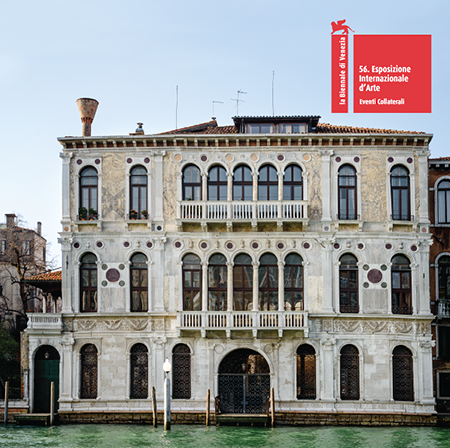May 7–August 15, 2015
Opening: May 7, 7pm
Palazzo Contarini-Polignac
874 Dorsoduro
30123 Venezia
www.villaempain.com
www.kukjegallery.com
www.tinakimgallery.com
Curator: Yongwoo Lee
Artists: Chung Chang-Sup, Chung Sang-Hwa, Ha Chong-Hyun, KIM Whanki, Kwon Young-Woo, Lee Ufan and Park Seo-Bo
With a special exhibition of site-specific new work by Lee Ufan.
We are very pleased to present Dansaekhwa, an official Collateral Event in the 56th Venice Biennial. The show is curated by Yongwoo Lee and organized by the Boghossian Foundation together with Kukje Gallery, Seoul and Tina Kim Gallery, New York. A seminal art historical movement in post-war Korea, Dansaekhwa is loosely related to the Western monochrome tradition and is sometimes translated as “the school of white.” Dansaekhwa artists each have a unique philosophy but many overlapping concerns unite their work. These include a strong aesthetic ideal focused on the unity between artist and nature as well as a very refined approach to mark making. Many of these points of reference are rooted in traditional Taoist and Buddhist ideas. This emphasis on native cultural idioms was politicized during the 20th century when post-war Korean identity was in a state of radical flux. It is in these tumultuous times that Dansaekhwa evolved and helped shape modern Korean art history. While specifically rooted in a Korean context, Dansaekhwa must be seen as having important formal and conceptual links to parallel movements in Japan and the West including Gutai, Mono-ha and Abstract Expressionism.
The exhibition will showcase the works of key masters who defined Dansaekhwa’s development in the 1970s, providing an essential conceptual framework to appreciate this important movement. A subject of renewed interest in both Korea and internationally, this is a timely exhibition that explores a group of artists whose exquisitely beautiful and politically engaged work continues to have a profound influence on contemporary art. The participating artists are Chung Chang-Sup, Chung Sang-Hwa, Ha Chong-Hyun, KIM Whanki, Kwon Young-Woo, Lee Ufan, and Park Seo-Bo.
Yongwoo Lee has organized the exhibition to trace the development of Dansaekhwa. While a seminal historical movement that has had lasting influence, Dansaekhwa continues to be a vital framework with many of its founding artists continuing to make work. As such the curator has chosen to focus on its development over five decades, from the 1960s to today. By including works completed in different periods, the curator will emphasize how the social milieu within Korea had an impact on the development and public reception of Dansaekhwa.
In order to set the stage for many of the predominant themes that came to be associated with Dansaekhwa, including its emphasis on monochromatic compositions and innovative use of materials, Yongwoo Lee has included a major group of works from the 1960s by the artist KIM Whanki. Less known outside of Korea, this is an historic opportunity to see KIM’s role as a foundational member in the post-war Korean art scene whose work and ideas contributed to the advance of Dansaekhwa.
The exhibition will occupy all three floors of Palazzo Contarini-Polignac. The ground floor will be devoted to new, commissioned sculptural work by Lee Ufan. One of the founders of both the Mono-ha movement and Dansaekhwa, Lee Ufan’s intense and silent sculptural forms will frame a confrontation between two materials: steel plates and natural stones.
On the second floor, works by KIM Whanki will set the stage for Yongwoo’s curated Dansaekhwa exhibition that will occupy both the second and third floors. In addition, an important academic conference focused on Dansaekhwa and recorded in January 2015 will be shown to engage the public and give necessary historical insight into its beginnings, as well as to frame some of the ongoing debates regarding its influence. Coupled with a range of related archival materials, scholarship, and ephemera, the exhibition will be the first rigorous academic presentation of Dansaekhwa to be held outside of Korea and will be a landmark moment in its introduction to the international community.


